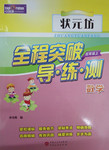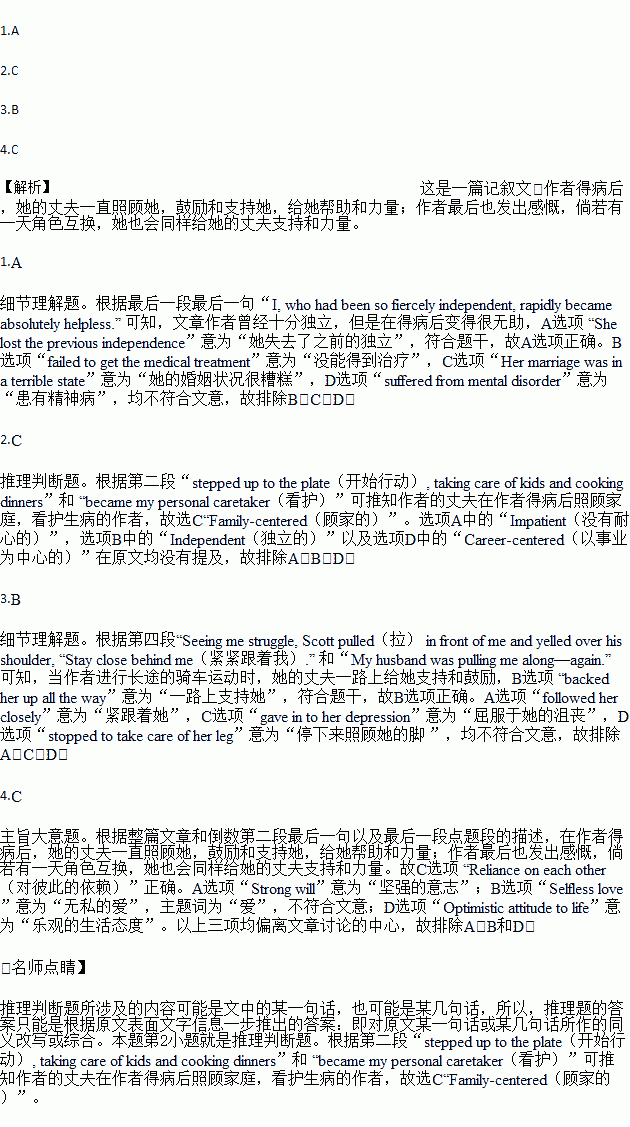题目内容
My husband and I had been married nearly twenty-two years when I acquired Stevens-Johnson syndrome, a disorder where my immune(免疫的)system responded to a virus by producing painful blisters. Although my long-term evaluation was good, I, who had been so fiercely independent, rapidly became absolutely helpless.
My husband, Scott, stepped up to the plate, taking care of kids and cooking dinners. He also became my personal caretaker, applying the medicine to all of my blisters because my hands couldn’t do the job. Needless to say, I had negative emotions, bouncing from embarrassment to shame caused by total reliance on someone other than myself.
I recovered from my illness, but I couldn’t seem to recover from the thought that I loved my husband less than he loved me. This seeming distinction in our love continued to annoy me for the year following my illness.
Then recently Scott and I went on a long bike ride. He’s an experienced cyclist; I’m quite the green hand. At one point with a strong headwind and sharp pain building in my tired legs, I really thought I couldn’t go any further. Seeing me struggle, Scott pulled in front of me and yelled over his shoulder, “Stay close behind me.” As I followed his steps, I discovered that my legs quit burning and I was able to catch my breath. My husband was pulling me along-again.
I pray my husband will always be strong and healthy. But if he should ever become the struggling one, whether on a bike ride or with an illness, I trust Ill be ready to call out to him, Stay close behind me--my turn to pull you along.
1.The author felt helpless because _________.
A. She lost the previous independence
B. She failed to get the medical treatment
C. Her marriage was in a terrible state
D. She suffered from mental disorder
2.Which of the following best describes the authors husband according to Paragraph 2?
A. Impatient. B. Independent.
C. Family-centered. D. Career-centered.
3.When going on the long bike ride, the authors husband_________.
A. followed her closely B. backed her up all the way
C. gave in to her depression D. stopped to take care of her leg
4.What message does the author convey in the passage?
A. Strong will. B. Selfless love.
C. Reliance on each other. D. Optimistic attitude to life.
 状元坊全程突破导练测系列答案
状元坊全程突破导练测系列答案
